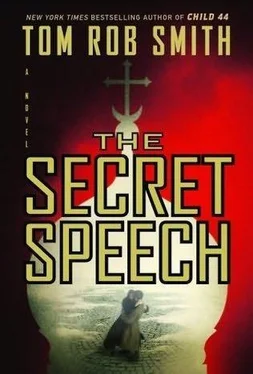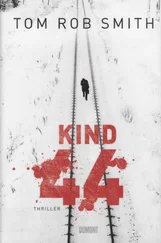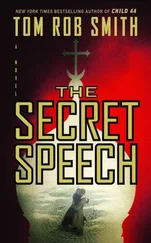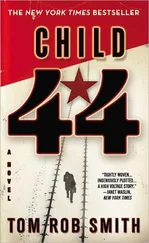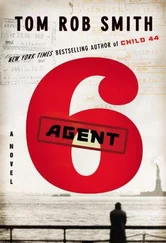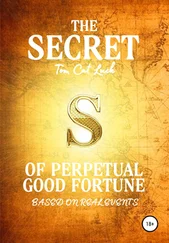Tom Smith - Secret speech
Здесь есть возможность читать онлайн «Tom Smith - Secret speech» весь текст электронной книги совершенно бесплатно (целиком полную версию без сокращений). В некоторых случаях можно слушать аудио, скачать через торрент в формате fb2 и присутствует краткое содержание. Жанр: Триллер, на английском языке. Описание произведения, (предисловие) а так же отзывы посетителей доступны на портале библиотеки ЛибКат.
- Название:Secret speech
- Автор:
- Жанр:
- Год:неизвестен
- ISBN:нет данных
- Рейтинг книги:5 / 5. Голосов: 1
-
Избранное:Добавить в избранное
- Отзывы:
-
Ваша оценка:
- 100
- 1
- 2
- 3
- 4
- 5
Secret speech: краткое содержание, описание и аннотация
Предлагаем к чтению аннотацию, описание, краткое содержание или предисловие (зависит от того, что написал сам автор книги «Secret speech»). Если вы не нашли необходимую информацию о книге — напишите в комментариях, мы постараемся отыскать её.
Secret speech — читать онлайн бесплатно полную книгу (весь текст) целиком
Ниже представлен текст книги, разбитый по страницам. Система сохранения места последней прочитанной страницы, позволяет с удобством читать онлайн бесплатно книгу «Secret speech», без необходимости каждый раз заново искать на чём Вы остановились. Поставьте закладку, и сможете в любой момент перейти на страницу, на которой закончили чтение.
Интервал:
Закладка:
– To the entire country?
– He argued that these words couldn’t go beyond the confines of the hall or it would damage our nation’s reputation.
Leo failed to keep the anger out of his voice:
– Then why are there millions of copies in circulation?
– He lied. He wants people to read it. He wants people to know that he was the first person to say sorry. He’s taken his place in history. He’s the first man to criticize Stalin and not be executed. The notice that it is not to be printed in the press was a concession to those who opposed the speech. Of course, the stipulation is absurd in the context of the wider distribution plans.
– Khrushchev rose up under Stalin.
Panin smiled:
– We are all guilty, yes? And he feels it. He’s confessing, selectively. In many ways, it’s an old-fashioned denunciation. Stalin is bad: I’m good. I’m right: they’re wrong.
– Nikolai, myself, we are the people he’s telling everyone to hate. He is making monsters of us.
– Or showing the world the monsters we really are. I include myself in that, Leo. It is true for everyone who was involved, everyone who made the system tick. We’re not talking about a list of five names. We’re talking about millions of people, all of them either actively involved or complicit. Have you considered the possibility the guilty might outnumber the innocent? That the innocent might be a minority?
Leo glanced at the KGB officers examining the two daughters.
– The people who sent this speech to Nikolai must be caught.
– What leads do you have?
Leo opened his notepad, taking out the folded sheet of paper retrieved from Moskvin’s printing press.
Under torture, Eikhe
Panin examined it while Leo retrieved a page from Nikolai’s copy of the speech. He pointed at a line: Under torture, Eikhe was forced to sign a protocol of his confession prepared in advance by the investigative judges.
Spotting the duplication of the three words, Panin asked:
– Where did the first sheet come from?
– From a printing press, run by a man called Suren Moskvin, retired from the MGB. I’m sure the speech was delivered to him. His sons claim that he had an official contract with the State to print ten thousand copies. But I can find no evidence of that contract. I don’t believe it existed: it was a lie. He was told it was a State contract and then he was given the speech. He worked through the night, typesetting it; by the time he got to these words, he’d decided to kill himself. They gave him the speech knowing the effect it would have, just as they gave it to Nikolai, just as they gave it to me. Yesterday, Nikolai said he was being sent photographs of the people that he’d arrested. Moskvin was also harassed with photographs of the people he’d come into contact with.
Leo took out the modified volume of Lenin’s text, holding up the arrest photo glued into the front instead of Lenin.
– I’m sure one person connects all three of us-Suren, Nikolai, and myself-someone recently released from imprisonment, a relative of a…
Leo paused before adding the word:
– … A victim.
Timur asked:
– How many people did you arrest as an MGB officer?
Leo considered. On occasions, he arrested entire families-six people in one night.
– Over three years… many hundreds.
Timur couldn’t hide his surprise. The number was high. Panin remarked:
– And you think the perpetrator would send a photograph?
– They’re not afraid of us, not anymore. We’re afraid of them.
Panin clapped his hands, calling together the various officers:
– Search this apartment. We’re looking for a batch of photographs.
Leo added:
– Nikolai would’ve hidden them carefully. It was essential that his family never find them. He was an agent so he was good at hiding things and good at knowing where people might look.
Systematically searching every room, the luxurious apartment Nikolai had spent years furnishing and decorating took two hours to dismantle. In order to search under the beds and rip up the floorboards, the bodies of his murdered children and wife were heaped in the center of the living room, wrapped in bedlinens. Around them, wardrobes were smashed, mattresses torn open. No photos were found.
Frustrated, Leo stared at Nikolai in the bath of bloody water. Struck by a thought, he stepped up to the bath and without taking off his shirt sank his arm into the water. He felt Nikolai’s hand. His fingers were locked around a thick envelope. He’d been clutching it when he died. The paper had become soft and broke apart as soon as Leo touched it, the contents floating to the surface. Timur and Panin joined him, watching as one by one the faces of men and women rose up from the bloody bottom of the bath. Soon a film of photographs, hundreds of overlapping faces, bobbed up and down. Leo’s eyes darted from old women to young men, the mothers and fathers, sons and daughters. He recognized none of them. Then one face caught his eye. He picked it out of the water. Timur asked:
– You know this man?
Yes, Leo knew him. His name was Lazar.
SAME DAY
Acrucifix had been drawn on the outside of the envelope, a careful ink drawing of the Orthodox cross. The drawing was small, roughly the size of his palm. Someone had taken time over it: the proportions were correct, the inkwork competent. Was it supposed to engender fear, as if he were a ghoul or a demon? More likely it was intended ironically, as a commentary on his faith. If so, it was misjudged-amateurish in its psychology.
Krasikov broke the seal, emptying the envelope’s contents onto his desk. More photographs… he was tempted to toss them in the fire as he’d done the others but curiosity stopped him. He put on his glasses, straining his eyes, studying this new batch of faces. At a glance they meant nothing. He was about to put them aside when one of the faces caught his attention. He concentrated, trying to remember the name of this man with intense eyes:
Lazar
These were the priests that he’d denounced.
He counted them. Thirty faces, had he really betrayed so many? Not all of them had been arrested while he’d been Patriarch of Moscow and All Russia, the leading religious authority in the country. The denunciations had predated that appointment, spread over many years. He was seventy-five years old. For a lifetime, thirty denunciations were not so many. His calculated obedience to the State had saved the Church from immeasurable harm-an unholy alliance, perhaps, yet these thirty priests had been necessary sacrifices. It was remiss of him not to be able to remember each of their names. He should pray for them every night. Instead, he’d let them slip from his mind like rain running off glass. He found forgetfulness easier than asking for forgiveness.
Even with their photographs in his hands he felt no regret. This wasn’t bravado. He suffered no nightmares, experienced no anguish. His soul was light. Yes, he’d read Khrushchev’s speech, sent to him by the same people that had sent these photos. He’d read the criticisms of Stalin’s murderous regime, a regime he’d supported by ordering his priests to praise Stalin in their sermons. Undoubtedly there’d been the cult of dictator and he’d been a loyal worshipper. What of it? If this speech pointed to a future of pointless introspection then so be it-but it wouldn’t be his future. Was he responsible for the Church’s persecution through the early decades of Communism? Of course not, he’d merely reacted to the circumstances in which he found himself and his beloved Church. His hand had been forced. The decision to surrender some of his colleagues was unpleasant although not difficult. There were individuals who believed they could say and do as they pleased simply because it was the work of God. They were naive and he’d found them tiresome, eager to be martyrs. In that sense, he’d merely given them what they wanted, the opportunity to die for their faith.
Читать дальшеИнтервал:
Закладка:
Похожие книги на «Secret speech»
Представляем Вашему вниманию похожие книги на «Secret speech» списком для выбора. Мы отобрали схожую по названию и смыслу литературу в надежде предоставить читателям больше вариантов отыскать новые, интересные, ещё непрочитанные произведения.
Обсуждение, отзывы о книге «Secret speech» и просто собственные мнения читателей. Оставьте ваши комментарии, напишите, что Вы думаете о произведении, его смысле или главных героях. Укажите что конкретно понравилось, а что нет, и почему Вы так считаете.
